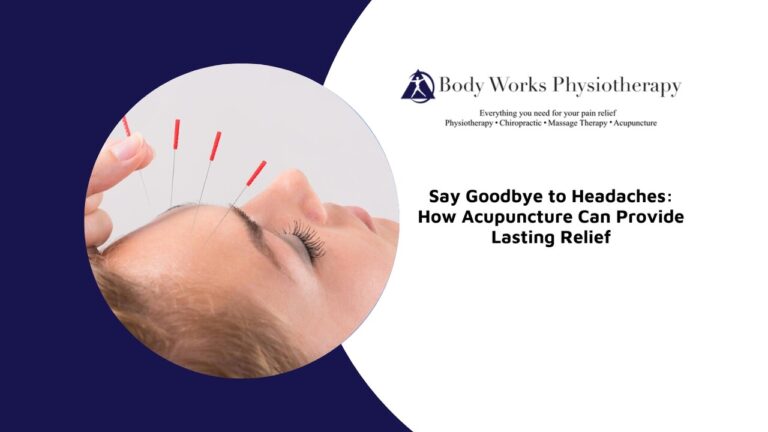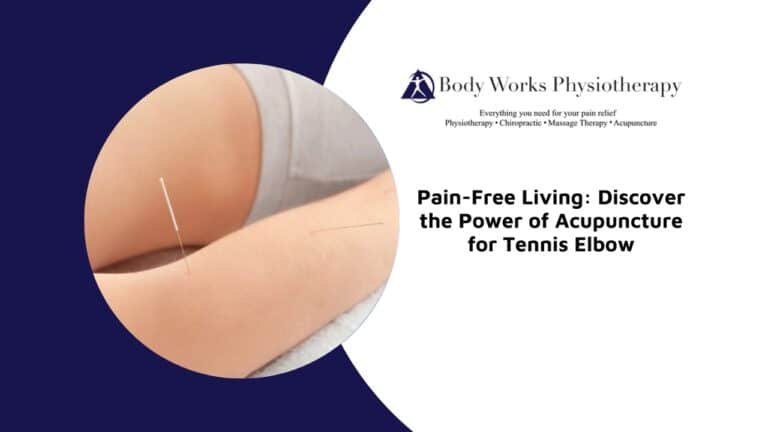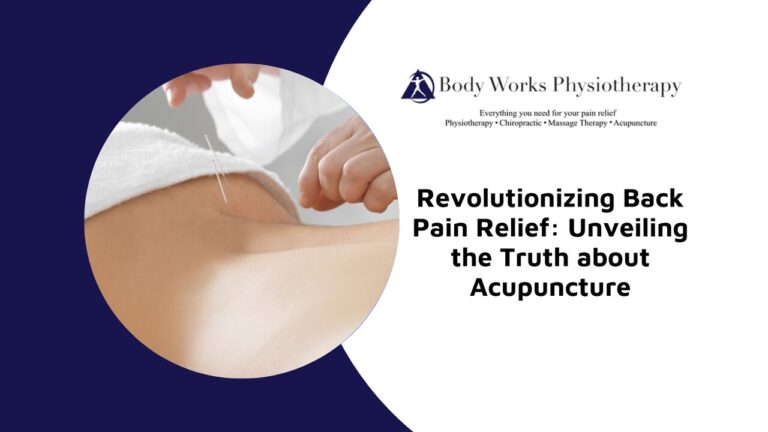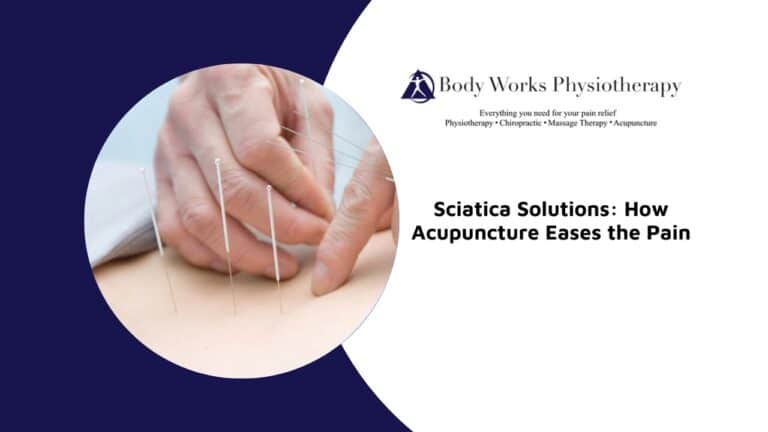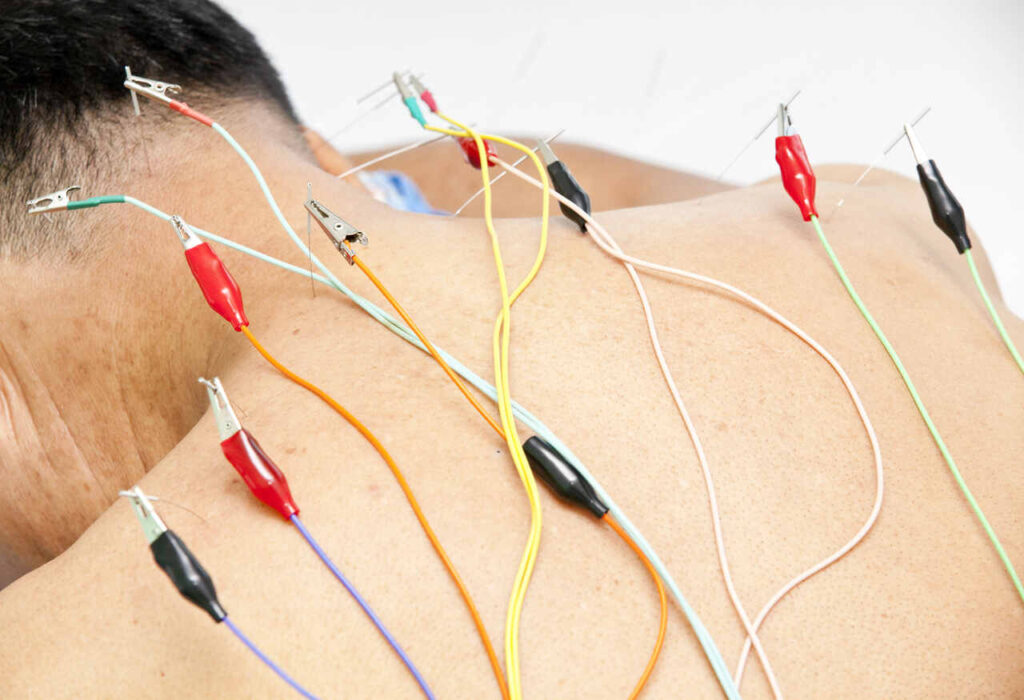
A pinched nerve can cause discomfort, pain, and even restricted mobility, impacting your daily activities. Acupuncture offers a natural and effective way to relieve pinched nerve symptoms. It not only alleviates nerve pain but also supports long-term recovery and improved nerve function. This blog explores how acupuncture can help you find relief and regain your quality of life.
Understanding Pinched Nerves
A pinched nerve occurs when excessive pressure is applied to a nerve by surrounding tissues such as bones, cartilage, muscles, or tendons. This compression disrupts the nerve’s normal function, causing pain, numbness, tingling, or weakness in the affected area. Pinched nerves can occur anywhere in the body but are commonly found in areas like the neck, back, or wrist.
The most frequent causes of pinched nerves include repetitive motions, poor posture, injuries, or underlying conditions such as arthritis, herniated discs, or carpal tunnel syndrome. Over time, the constant pressure can inflame the nerve, further exacerbating symptoms and delaying healing.
Recognizing a pinched nerve early is essential to prevent long-term damage. Symptoms may vary in intensity and location but often include sharp or burning pain, a pins-and-needles sensation, and even muscle weakness. While rest and conservative treatments like stretching and icing can sometimes alleviate symptoms, persistent or severe cases often require targeted therapies to relieve the pressure, reduce inflammation, and restore normal nerve function.
How Acupuncture Benefits a Pinched Nerve
Acupuncture offers a natural and effective way to manage pain and promote healing in pinched nerves. By targeting specific points in the body, it addresses both the immediate symptoms and the underlying causes of nerve compression.
- Pain Relief: Acupuncture helps alleviate pinched nerve pain by targeting specific points that stimulate the nervous system. This stimulation encourages the release of endorphins, the body’s natural painkillers, which reduce discomfort and promote relaxation.
- Improved Blood Flow: By enhancing circulation, acupuncture delivers essential oxygen and nutrients to the affected nerve. This increased blood flow helps reduce swelling, alleviate pressure on the nerve, and speed up the healing process.
- Reduced Muscle Tension: Tight muscles surrounding a pinched nerve can exacerbate symptoms. Acupuncture works to relax these muscles, relieving pressure on the nerve and easing associated pain.
- Inflammation Reduction: Acupuncture modulates the body’s immune response to decrease inflammation in the affected area, which is a common cause of nerve pain and irritation.
- Natural Healing Promotion: The stimulation of acupuncture points supports the body’s innate repair mechanisms, helping to restore proper nerve function and prevent further damage.
Acupuncture Points Used to Treat a Pinched Nerve
Key acupuncture points for a pinched nerve include those along the affected meridians, such as Huatuojiaji points near the spine and local points near the pinched nerve area. Distant points like LI 4 (Hegu) and ST 36 (Zusanli) may also be used to enhance circulation and reduce overall inflammation.
Is Acupuncture for Pinched Nerves Safe: Understanding Potential Risks and Side Effects
When performed by a licensed professional, acupuncture is a safe and minimally invasive treatment for pinched nerves. Understanding the potential risks and how to prepare can ensure a smooth and effective experience.
- Minimal Side Effects: The most common side effects include minor bruising, soreness, or slight fatigue at the needle sites. These effects are typically mild and resolve quickly.
- Rare Complications: Serious complications, such as infections or nerve damage, are extremely rare when the procedure is conducted using sterile equipment and proper techniques by a trained professional.
- Customizable Treatment: Licensed practitioners assess your medical history and current symptoms to create a personalized plan, ensuring the treatment is safe and appropriate for your condition.
- Precautions for Certain Conditions: Individuals with bleeding disorders, pacemakers, or those who are pregnant should inform their healthcare provider, as specific modifications may be required to ensure safety.
How Many Acupuncture Sessions Are Needed to See Improvement in Pinched Nerve Symptoms?
Most people notice some relief after 3 to 5 sessions, with significant improvement typically occurring within 6 to 10 sessions. The exact number depends on the severity of the pinched nerve and individual response to treatment.
For individuals with mild to moderate symptoms, a shorter course of treatment may be sufficient to alleviate discomfort and restore nerve function. Those with chronic or severe cases may require a longer-term approach, involving consistent sessions over several weeks or months to achieve sustained results.
The frequency of sessions typically starts at once or twice a week to establish initial relief and promote healing. As symptoms improve, the practitioner may gradually reduce the frequency to biweekly or monthly maintenance sessions. This ensures long-term benefits and minimizes the risk of recurrence.
In addition to in-clinic sessions, practitioners often recommend complementary at-home care strategies, such as gentle stretching, heat or cold applications, and mindfulness techniques, to enhance the effectiveness of the treatment. Combining acupuncture with these supportive practices creates a holistic approach to healing and accelerates the recovery process.
Acupuncture Sessions for a Pinched Nerve: What to Expect
Knowing what to expect during an acupuncture session for a pinched nerve can ease concerns and help you feel more confident about the process. Each session is designed to address your unique symptoms and promote lasting relief.
- Initial Evaluation: The session begins with a thorough assessment of your symptoms, medical history, and lifestyle factors that may contribute to the pinched nerve. This helps the practitioners identify the best points for treatment.
- Preparation: You’ll be asked to lie down in a comfortable position, with the affected area accessible. The practitioner will sanitize the skin before inserting the needles.
- Needle Placement: Thin, sterile needles are inserted into targeted acupuncture points along the affected meridians. These points may include areas near the pinched nerve or distant points that support overall nerve health.
- Sensations During Treatment: You may feel a mild tingling, warmth, or dull ache at the needle sites. These sensations are normal and indicate that the treatment is stimulating your nervous system.
- Session Duration: Each session typically lasts between 30 and 60 minutes. The practitioner may adjust the needles slightly during the session to optimize their effects.
- Post-Treatment Experience: Many people report feeling relaxed and notice pain relief either immediately or within a few hours of the session. Mild soreness or fatigue may occur but usually subsides quickly.
- Consistency for Best Results: Multiple sessions are often needed for significant improvement, with most people experiencing noticeable changes within 3 to 10 treatments, depending on the severity of their condition.
Find the Relief You’ve Been Looking For
Don’t let a pinched nerve hold you back from living pain-free. Acupuncture provides a safe, non-invasive solution to manage symptoms, promote healing, and restore mobility. At Body Works Physiotherapy in Scarborough, our skilled practitioners are committed to helping you find lasting relief through personalized care. Take the first step toward comfort and recovery—schedule your appointment today and experience the benefits of acupuncture for pinched nerve relief!


